[ad_1]
I was scrolling through X last year when I saw this tweet from Shopify’s CEO:
It made me pause and think: is that possible? Real Replace Google with something else, like AI? After all, I grew up with Google; it never occurred to me that one day I would stop using the search giant.
But it made me curious to try it. That’s why I decided to stop using Google for a week. Instead, like Shopify’s CEO, I would use Bewilderment (a chatbot-style search engine.) When there are gaps, I turn to ChatGPT or Gemini for help.
For the ‘experiment’ I installed the Perplexity plugin and changed it to my default search engine. I also downloaded both the ChatGPT and Perplexity apps on my phone.
I mainly used Perplexity and found that I could do almost everything I did with Google, except for a few specific things like creating a site: search.
I actually liked Perplexity better. I wasn’t bothered by ads (at least for now) or complicated SERP features. And I didn’t have to click through multiple links to find what I was looking for.
For example, I saw a tweet about Jay Z and had no idea what was happening. So I asked and got the answer:
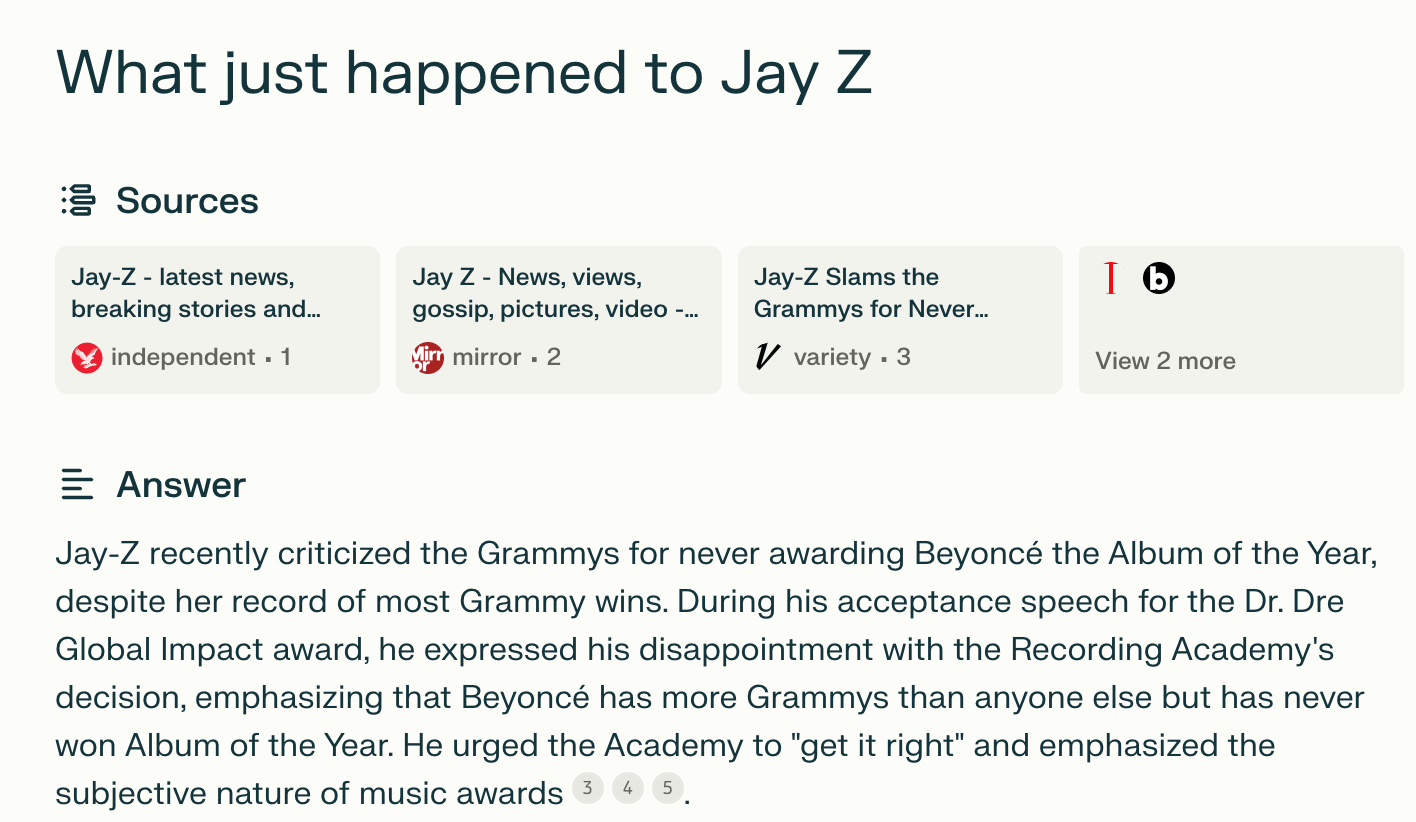
Gemini gave something similar:
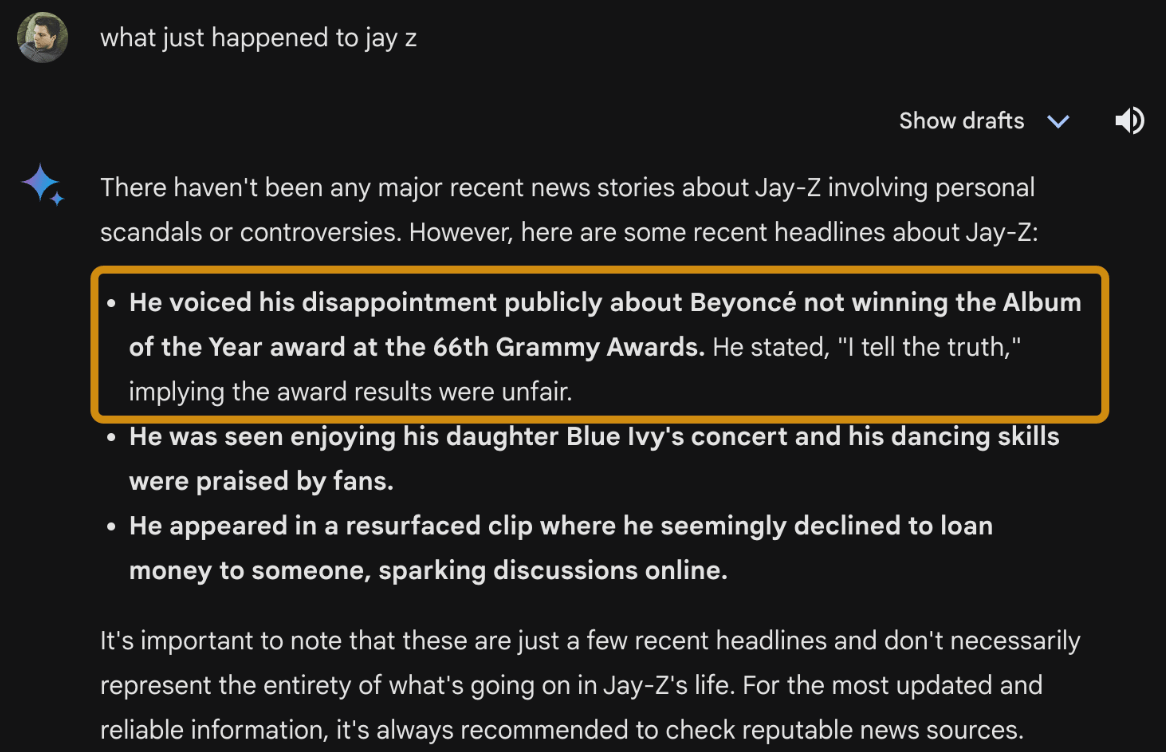

If I had done the same with Google, I would have had to click on an article, hoping it was the right result, and then suffer through layers of banner ads.


As a writer and content marketer, I can’t say enough how usable AI summaries are for research. I no longer have to click through and read every search result. I immediately get the summarized version.
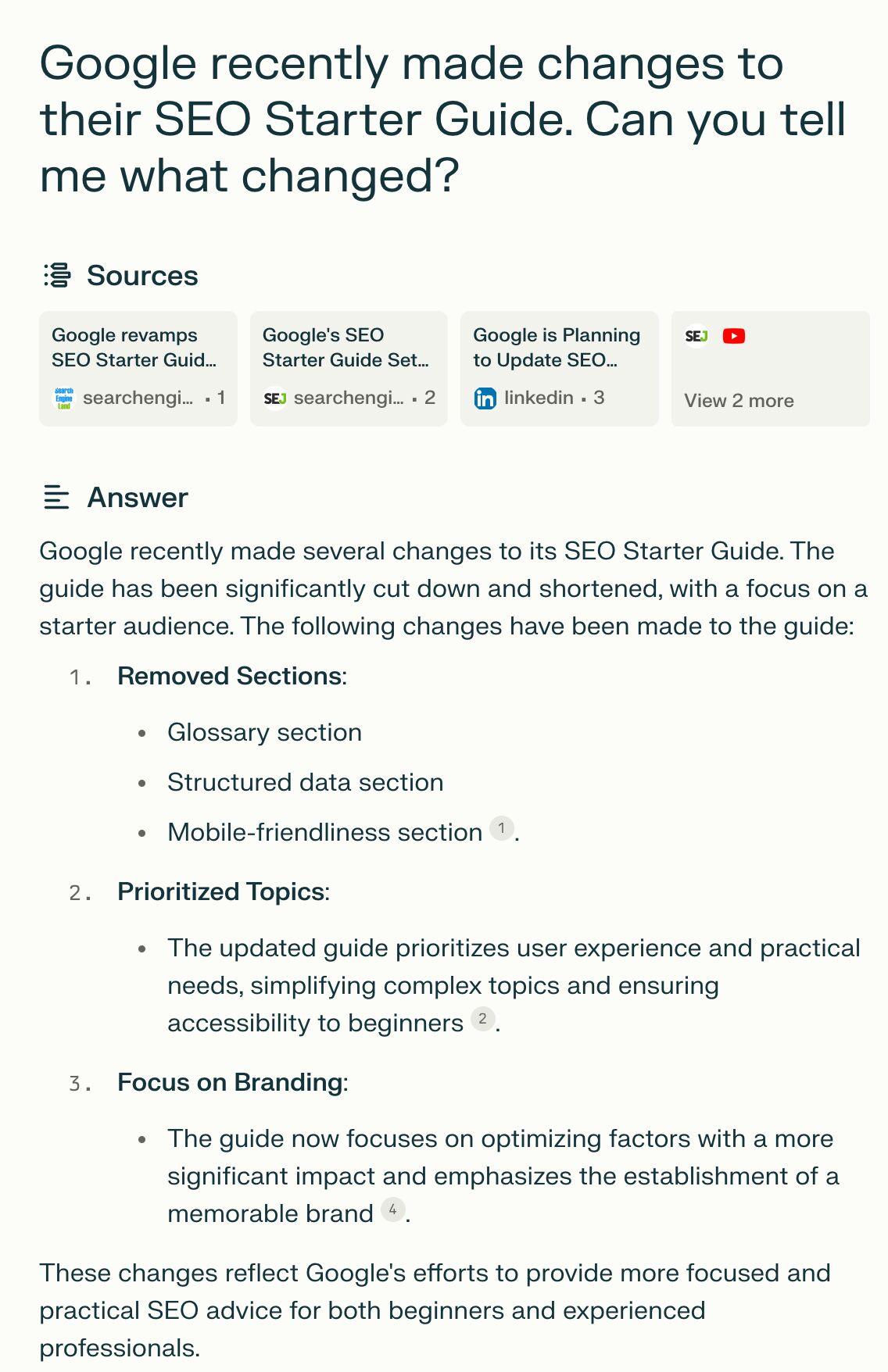

Example: I was writing my article about the most popular topics. I am not That old, but I’m clearly not up to date on most trends. Previously, each update took time because I had to read multiple articles to get an idea of what was happening. Perplexity solves this for me:
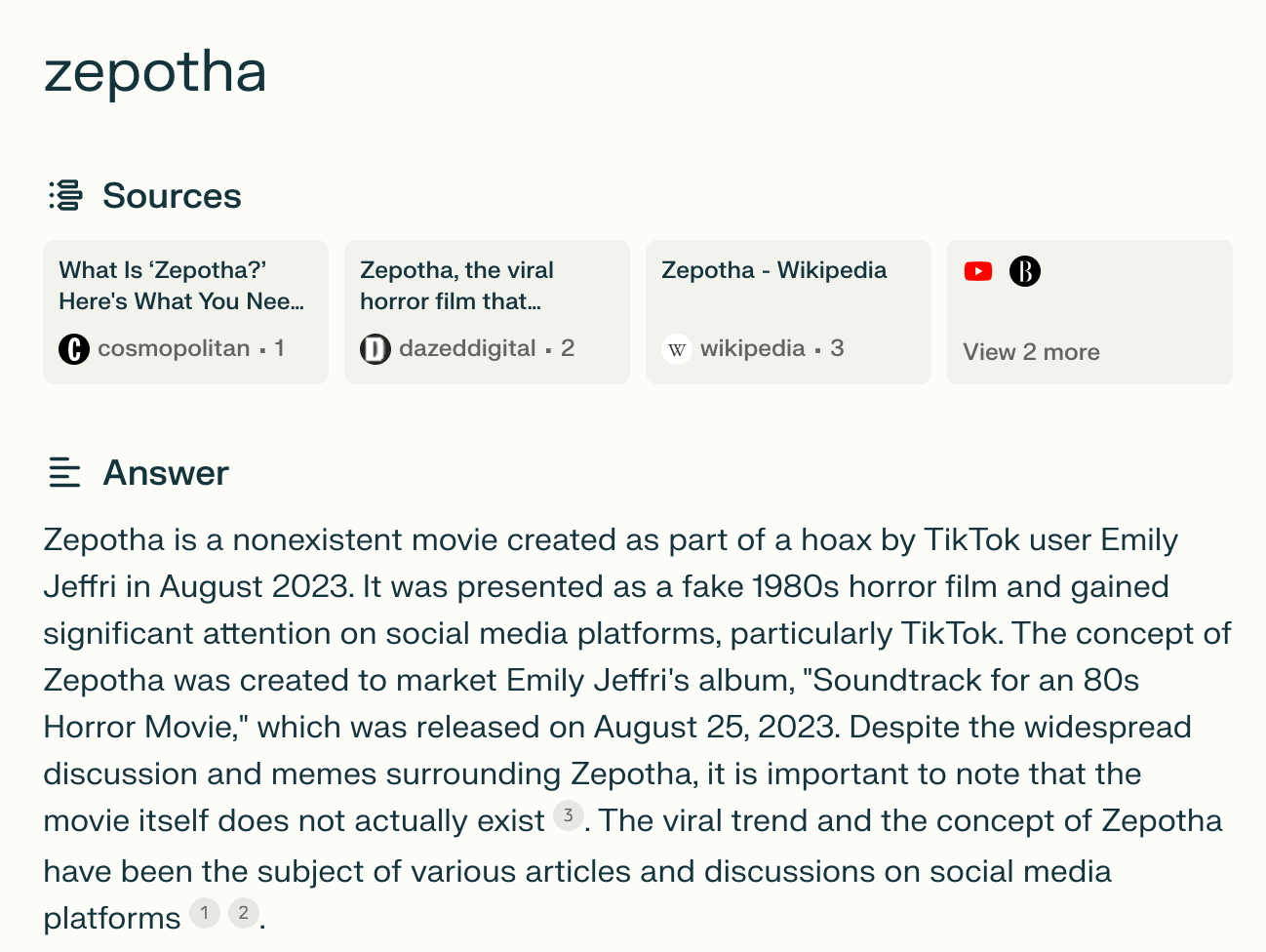

You can also do this with ChatGPT, but what I like about Perplexity is that you get access to the resource. So if you suspect the answer is a hallucination, you can check the facts by clicking on one of the sources cited. That’s much better than ChatGPT confidently conjuring something out of thin air.
If Perplexity can’t find anything or doesn’t understand your question, it won’t hesitate to tell you:
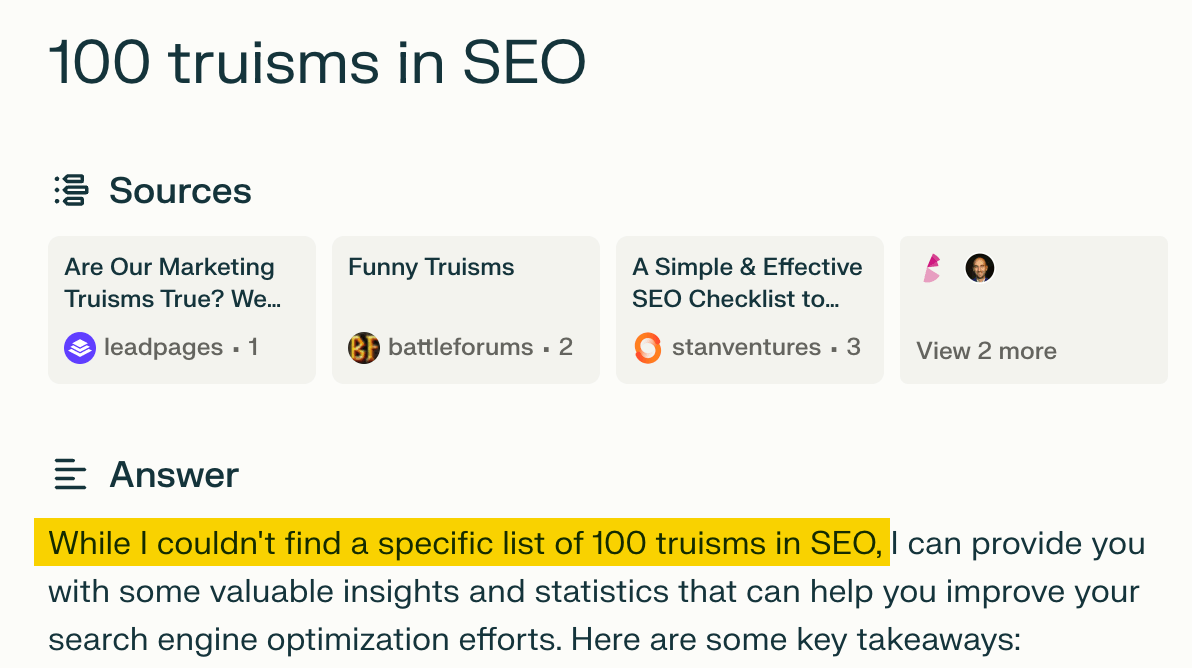

ChatGPT doesn’t do this nearly enough. Even if it doesn’t know something, it will still try to create an output, some of which are hallucinations.
That’s not to say Perplexity doesn’t hallucinate at all. It just happens less. For example, I asked why a road in Singapore had the same name as the wife of the Prime Minister of Singapore.
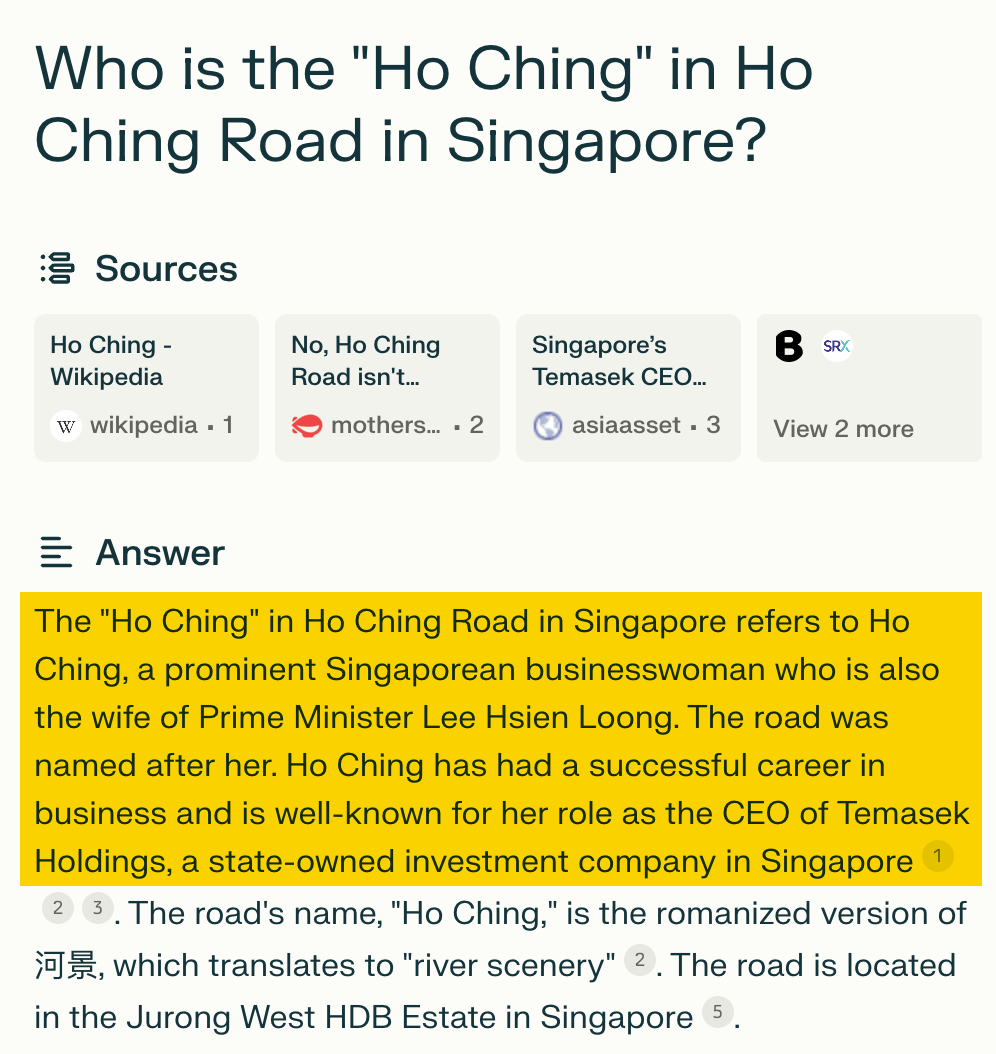

The answer was wrong: it was not named after her; it was just a coincidence. If someone didn’t click through to source #2, he or she would have been led astray.
My example: I read a book about a pioneer in Singapore. In the book, Dr. Oxley, the namesake of a road in Singapore. I asked Perplexity, and it delivered me a modern Dr. Oxley on:


The same search on Google immediately brought me the right person:
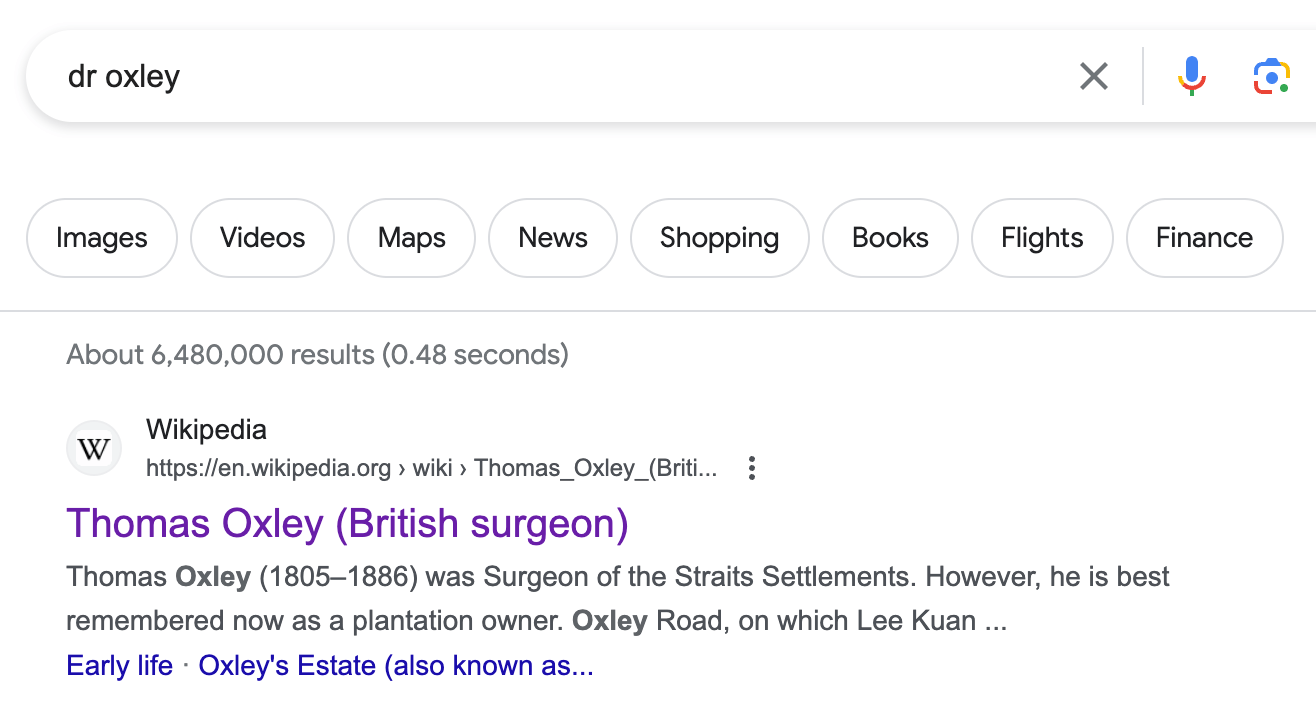

This is of course because Google collects location data. It knew I was in Singapore and therefore went to Dr. earlier. Thomas Oxley would then search for a doctor in the US.
Despite the fuss over Google’s data collection, it is clear that location data is important. Google uses this information to know where you are and can personalize the search results. After all, if you’re looking for the “best Italian restaurants,” you don’t want suggestions on the other side of the world. You want the ones that are in your area.
This is where I think Google excels and differentiates itself from AI. AI does not collect location data and does not know where you are (unless you tell it). So additional steps are needed to get the right results when you ask AI for local information.
Another example: I wanted to buy an ergonomic mouse. When I asked AI it suggested places in Great Britain (Argos):
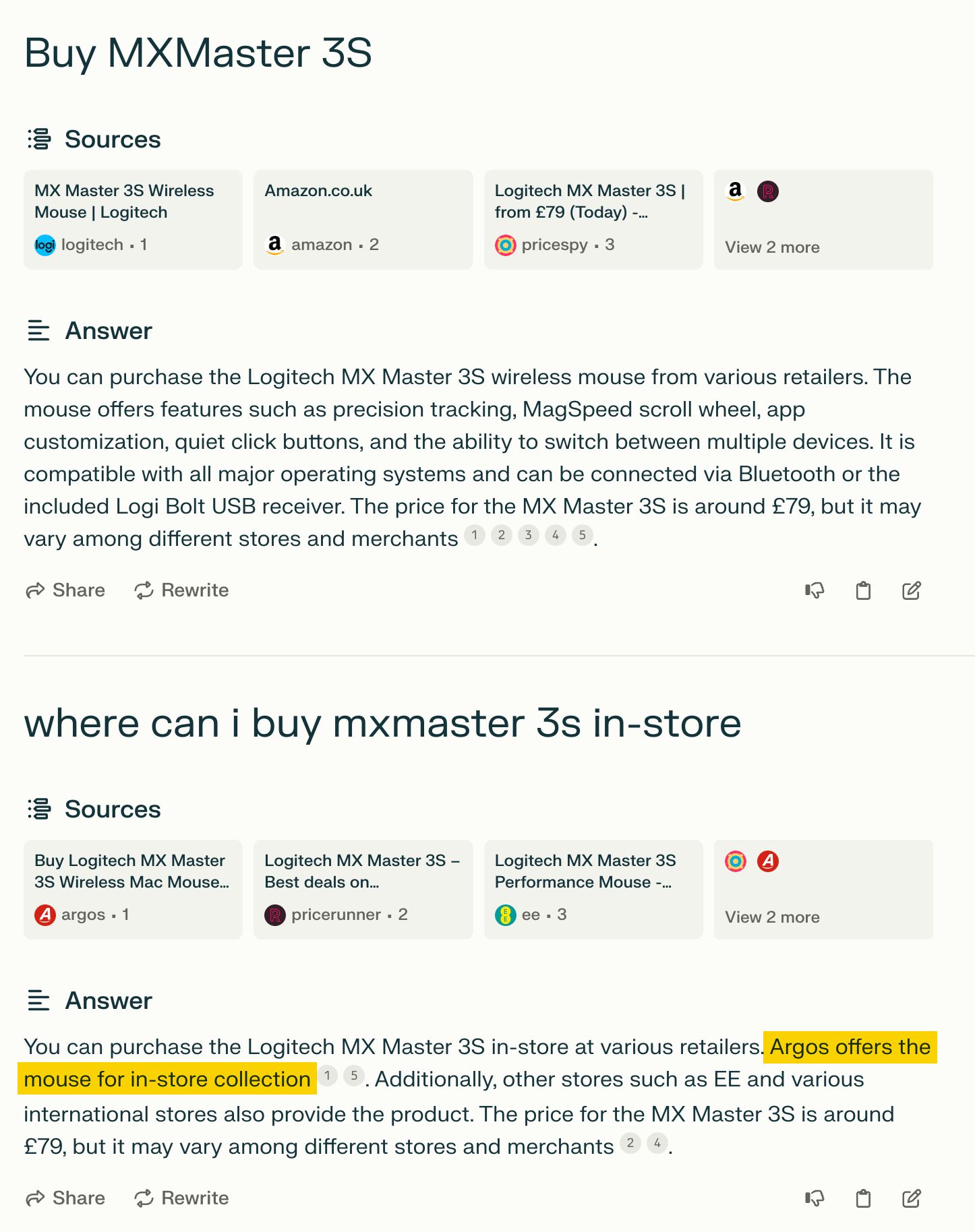

Rather, Google gave me a list of local places in Singapore where I could buy:
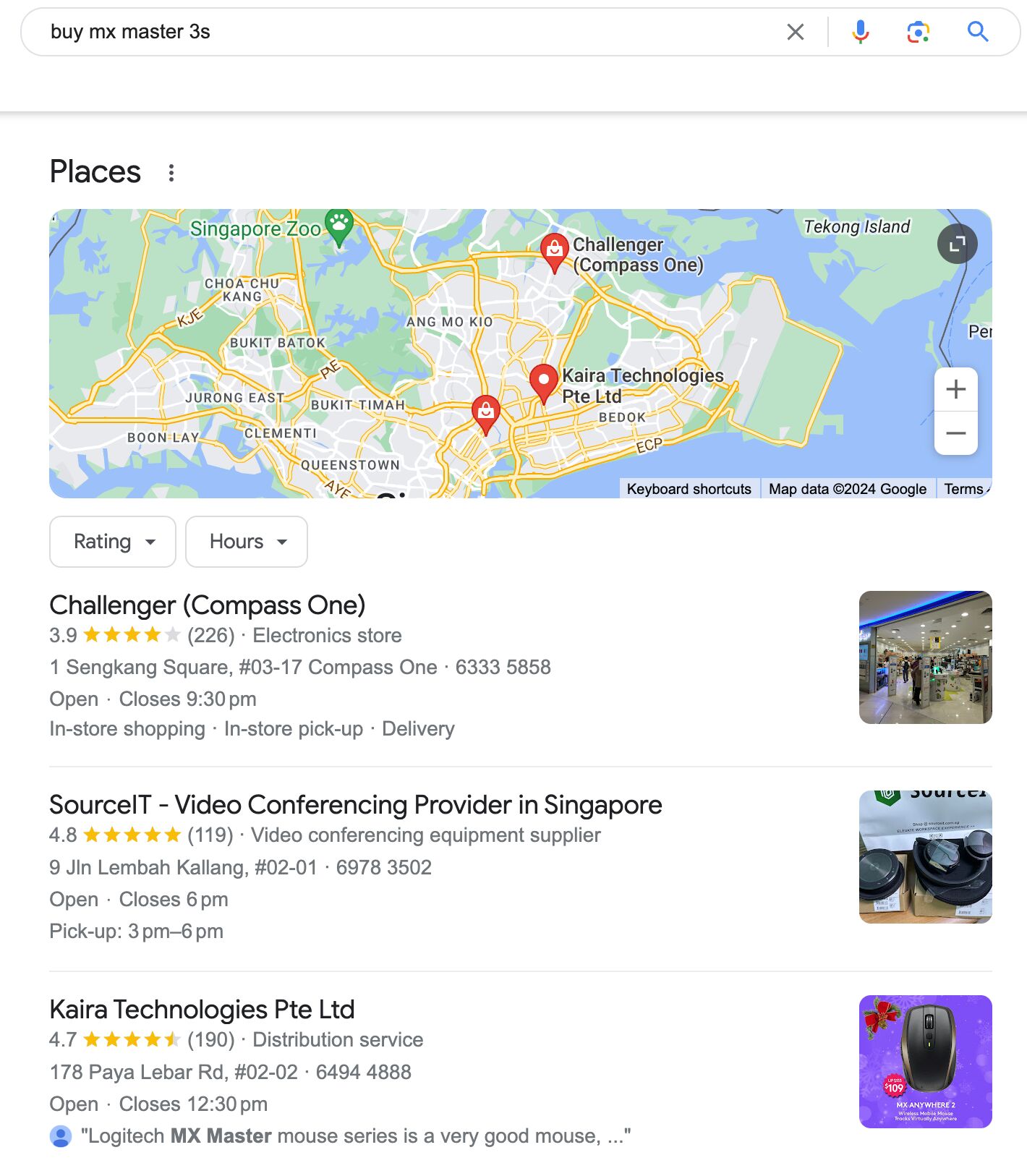

Final thoughts
Personally, I have largely replaced Google with Perplexity and use it 90% of the time. A clean interface, not having to click on multiple links, and summarized answers fit almost all my use cases.
If I use Google, it’s out of habit or because of work (I work in SEO, so as long as people still use Google, I’ll have to use it.)
Perplexity founder Aravind Srinivas tweets that Perplexity is what Google wanted to become 23 years ago. They just didn’t have the right technology.
If we want to predict Google’s future, perhaps we should see where Perplexity is going.
[ad_2]



